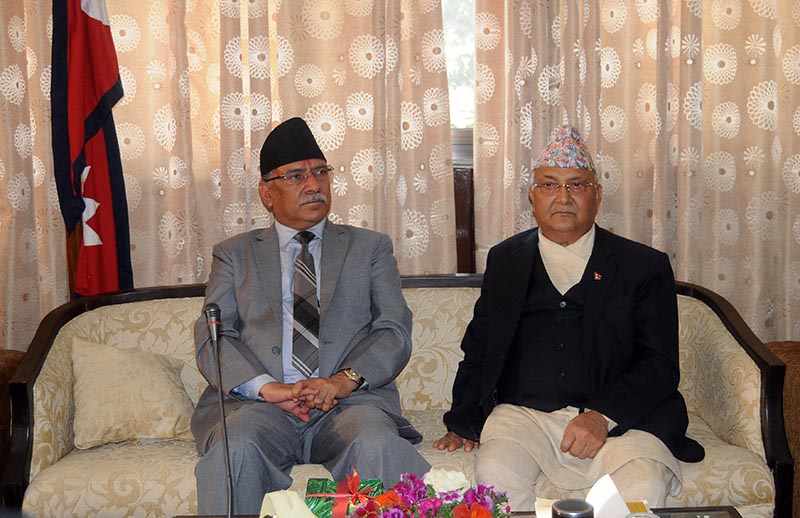Partisan interests overshadow NCP unification
Kathmandu, February 22
The ruling Nepal Communist Party (NCP) today dissolved a task force formed to prepare a roadmap for unification of party’s lower committees and directed its nine-member Secretariat to give continuity to that work.
It is not known whether the Secretariat will be able to complete the work, as partisan interests have overshadowed the unification agenda.
NCP (NCP) Spokesperson Narayan Kaji Shrestha said the Secretariat would soon prepare the roadmap and hand it over to the Standing Committee. The roadmap should recommend office bearers of district committees, party departments, sister organisations and the politburo. It should also provide suggestions on reviewing the party statute.
A top NCP (NCP) leader told THT that today’s decision to render the task force — created as per the decision taken by the Standing Committee — ineffective would only delay the unification process. “Some leaders deliberately wanted to dissolve the task force and they succeeded in doing so,” said task force member Beduram Bhusal. “This will prolong the party unification process.”
Bhusal claimed that home minister and task force coordinator Ram Bahadur Thapa and another member of the task force Bishnu Paudel were not committed to preparing the roadmap.
“The coordinator did not even convene the task force meeting on the day he was supposed to,” Bhusal added.
Many had doubted the task force would be able to prepare the unification roadmap as many members peddled interests of their own faction. For example, task force members like Bushal, Surendra Pandey and Yogesh Bhattarai were backing senior NCP (NCP) leader Madhav Kumar Nepal, whereas Paudel, Shankar Pokharel and Raghuvir Mahaseth were toeing Prime Minister and NCP (NCP) Co-chair KP Sharma Oli’s line. On the other hand, Thapa, Barshaman Pun and Lekharaj Bhatta were advocating on behalf of another NCP (NCP) Co-chair Pushpa Kamal Dahal.
Because of factional interests, a three-page report prepared by Thapa and Poudel was rejected by Nepal. “We wanted the roadmap to be framed on the basis of certain principles, but the other side wanted to hand over party’s responsibilities to deserving candidates,” said Bhusal, who is close to Nepal. “There is no yardstick for measuring deserving candidate as there are thousands of leaders and cadres with similar qualities. So, we wanted to assign responsibilities on the basis of certain principles to prevent leaders from using their discretionary power.”
Bhusal’s comments were aimed at the Oli faction, which is in favour of allowing party leaders to hold two posts (one in the party and another in the government), but Nepal’s faction is strongly opposed to this proposal. The Nepal faction also wants the party to reconstitute provincial committees, a demand that the Oli faction has rejected.
Pun, Bhatta, Bhusal, Bhattarai and Pandey are expected to issue a statement tomorrow to protest the decision to scrap the task force.






